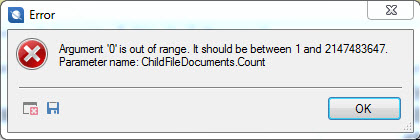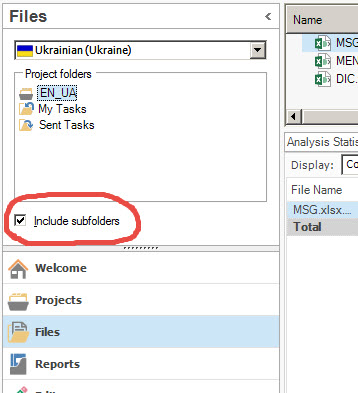How to get rid of the “Argument {0} is out of range” error in Trados Studio

The “Argument {0} is out of range” error in Trados Studio is easy to fix
One of the amazing errors in Trados Studio sometimes occurs when you try to save translation—i.e. after you press the CTRL + S key combination. It looks like this:

To a non-specialist, this message yields little information. To be more precise, it is meaningless—one just doesn’t have a clue. Moreover, Trados Studio doesn’t allow saving files, and it seems to you that the results of your work are lost.
Hold your horses and don’t import the Trados Studio package again! If you do this, the results of your work will be lost indeed.
According to our experience, this error only occurs when several package files have been opened simultaneously with the Include subfolders flag set:

The way out is to open files one by one, not “in bulk.” In this case, Trados Studio saves the changes “properly.”
Thus, if you face this error, the algorithm for saving the performed translation is as follows:
- Close the files without changing them (actually, you have no options at this stage).
- Remove the Include subfolders flag.
- Open the documents one by one, and populate the target with your translation from the translation memory by replacing the existing translation, if there is one, using the CTRL + T key combination. (You have been confirming segments through CTRL + ENTER while translating, haven’t you? We hope you have; otherwise, this method won’t work.)
- Save the documents the usual way—by pressing CTRL + S.




